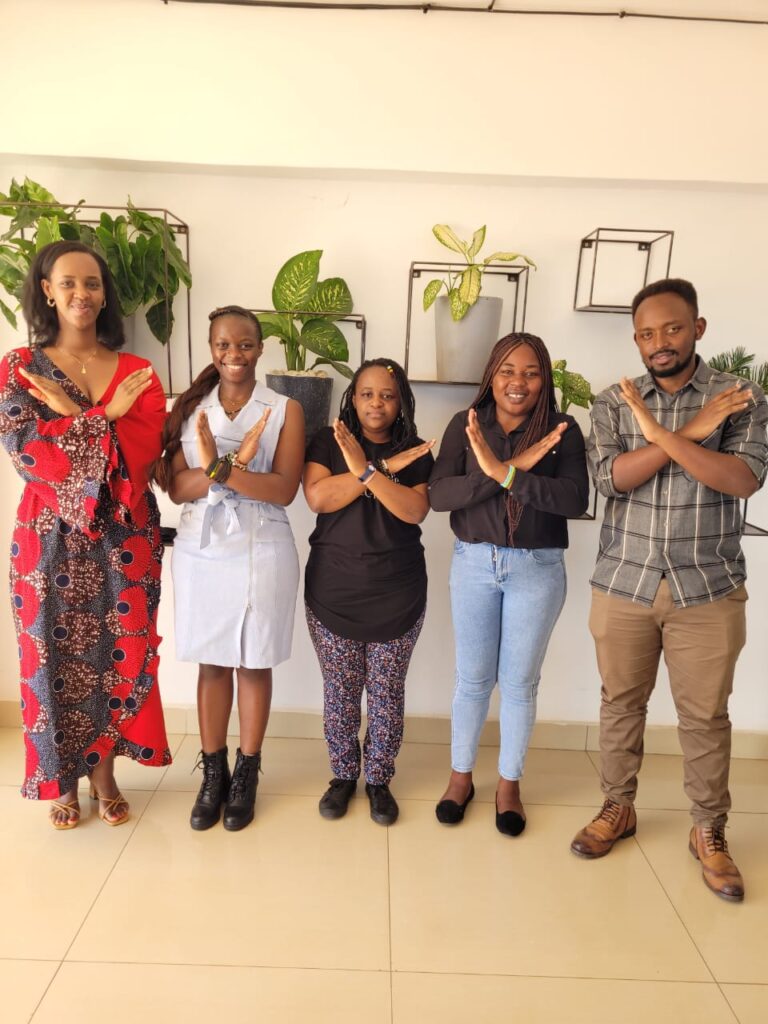
Women Run the Efforts in Addressing Climate Change: We Appreciate and Celebrate!
By Isingizwe Sandra, Honorine Isingizwe, Eva peace Mukayiranga, Adeline Cyuzuzo, Olivier Ishimwe, Hyacinthe Niyitegeka, and Ineza Umuhoza Grace
Not only in science, but in all aspects of daily life. Many of us grew up in communities where women were overlooked in almost every aspect of our lives. In different regions of the world especially Sub Saharan African countries, women suffer disadvantages compared to men due to cultural and social differences. Women were thought to be inadequate, particularly when it came to so-called difficult work that request either physical power or intelligence. For example, women were pictured to undertake household activities, taking care of husbands and bearing children. We are leaving in an era of possibility where women can do professional work and at the same time embrace their full potential as women, Rwanda is a small country that excels in making this a living reality. For the past 28 years, the Rwandan government has been promoting gender equality and women’s empowerment across all development sectors.
The world is confronted with a common crisis, climate change, and we are all trying to cope and find solutions to limit the negative effects on our lives. Unfortunately, women and girls are among the most affected by the crisis, with most girls being forced to marry at a young age in order for their families to recover what they have lost, and they are not actively engaged in the decision making process. for example, after being hit by extreme events such as floods, droughts, hurricanes, etc. some families marry their daughters to more stable families in order to save them; the Climate change crisis increases early child marriages. Girls are the ones who primarily miss classes or drop out of school in order to care for their families. Women are found to be more affected by climate change because they are the ones who take care of household chores, such as during droughts, they are the ones who mostly travel a long distance to fetch water, and during floods, they are forced to stay at home taking care of their household livelihoods.
The climate change crisis is hitting differently in vulnerable least developed countries, where communities are unable to cope as effectively as they should due to limited capacities and resources. Women and girls are more exposed and in addition to that. COVID-19 pandemic, a high percentage of girls in developing countries dropped out of school; the e-learning system is not as developed as it is in developed countries, which leads to dropouts because not every student has access to resources for e-learning systems.
Every March 8th, we celebrate women internationally; this year’s 2022 campaign theme is #BreakTheBias. We must all be involved and
solicit opinions and actions from both genders, without undermining our abilities. For this year’s International Women’s Day, we want to celebrate all the women who take part in addressing climate change, those on the frontlines of climate change impacts who unceasingly contribute to design solutions for their communities and those involved in research to ensure that the frontline voices are captured to each and everyone we celebrate.
Allow us to name a few of them:
-
The Minister of Environment in Rwanda, Dr. Jeanne d’Arc Mujawamariya,
The Director General of Rwanda Environment Management Authority, Juliet Kabera,
The Chief Executive Officer of the Rwandan Green Fund, FONERWA, Teddy Mugabo,
The 46 least developed countries (LDCs) group Chair in the United Nations Framework Convention on Climate Change (UNFCCC) conference of parties, Madeleine Diouf Sarr,
Many other women representing their countries are actively participating and demonstrating their capabilities, and more on the ground, facing the effects of climate change while also contributing to coping with those effects.
Your contribution and work are extremely valuable to us and you hold a candle of hope to achieve climate justice.
Women are the climate heroes that were no cap! They are more prevalent in the climate change sector, they are making interventions in the decision-making process, their voices are making a difference, they are taking small steps with an unfailing determination. They are the voices of the voiceless communities. As men cannot do everything on their own, neither can women. We must all be involved and solicit opinions and actions from both genders, without undermining our abilities. With our collective work, we will be building a better world now and for future generations.
Everyone can be a candle of hope in the climate change sector!